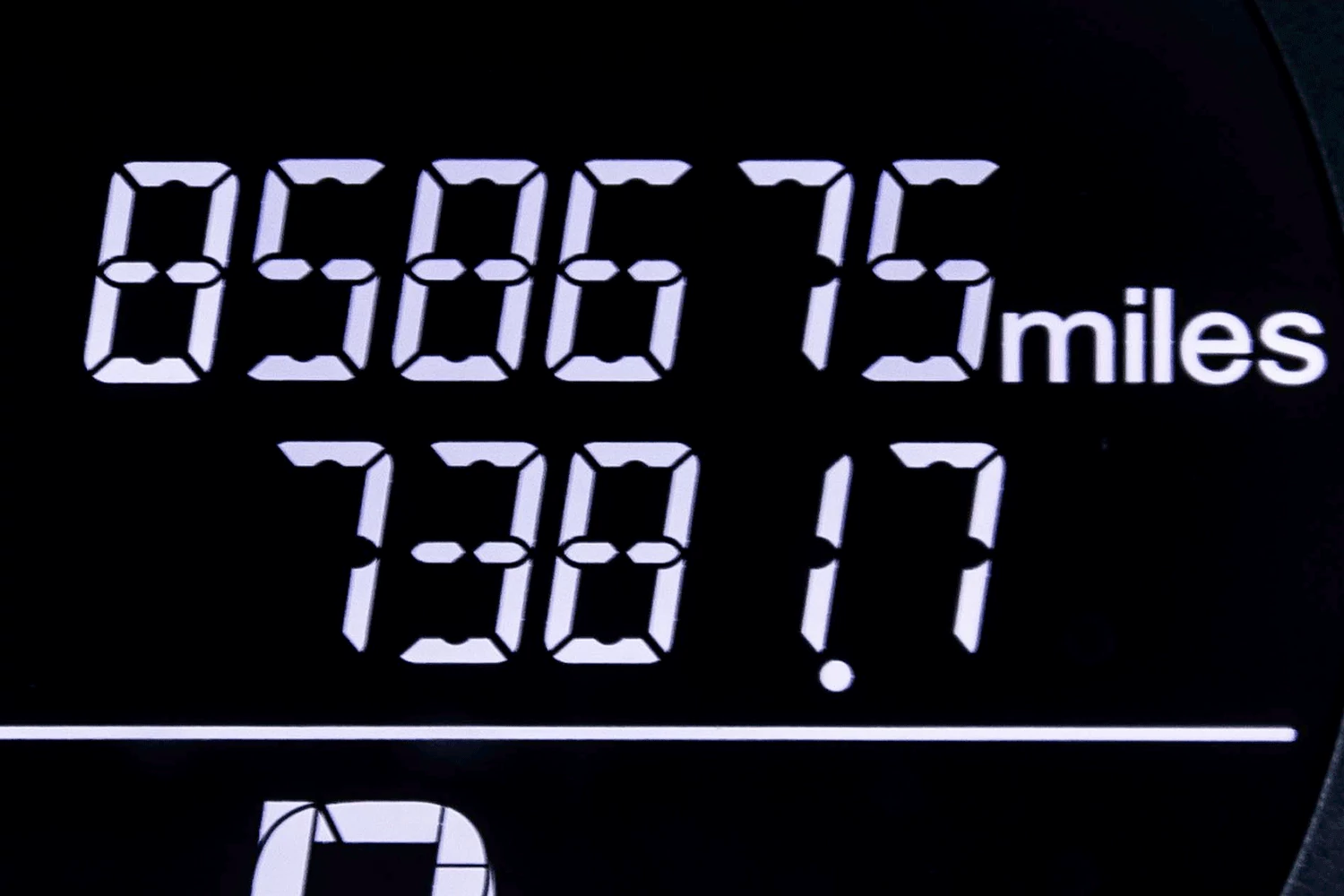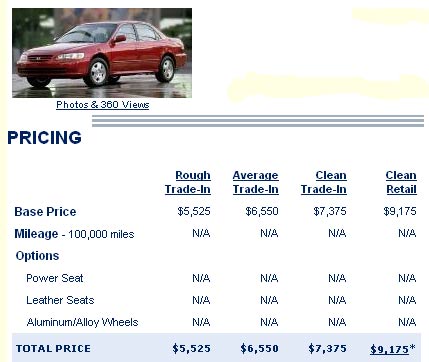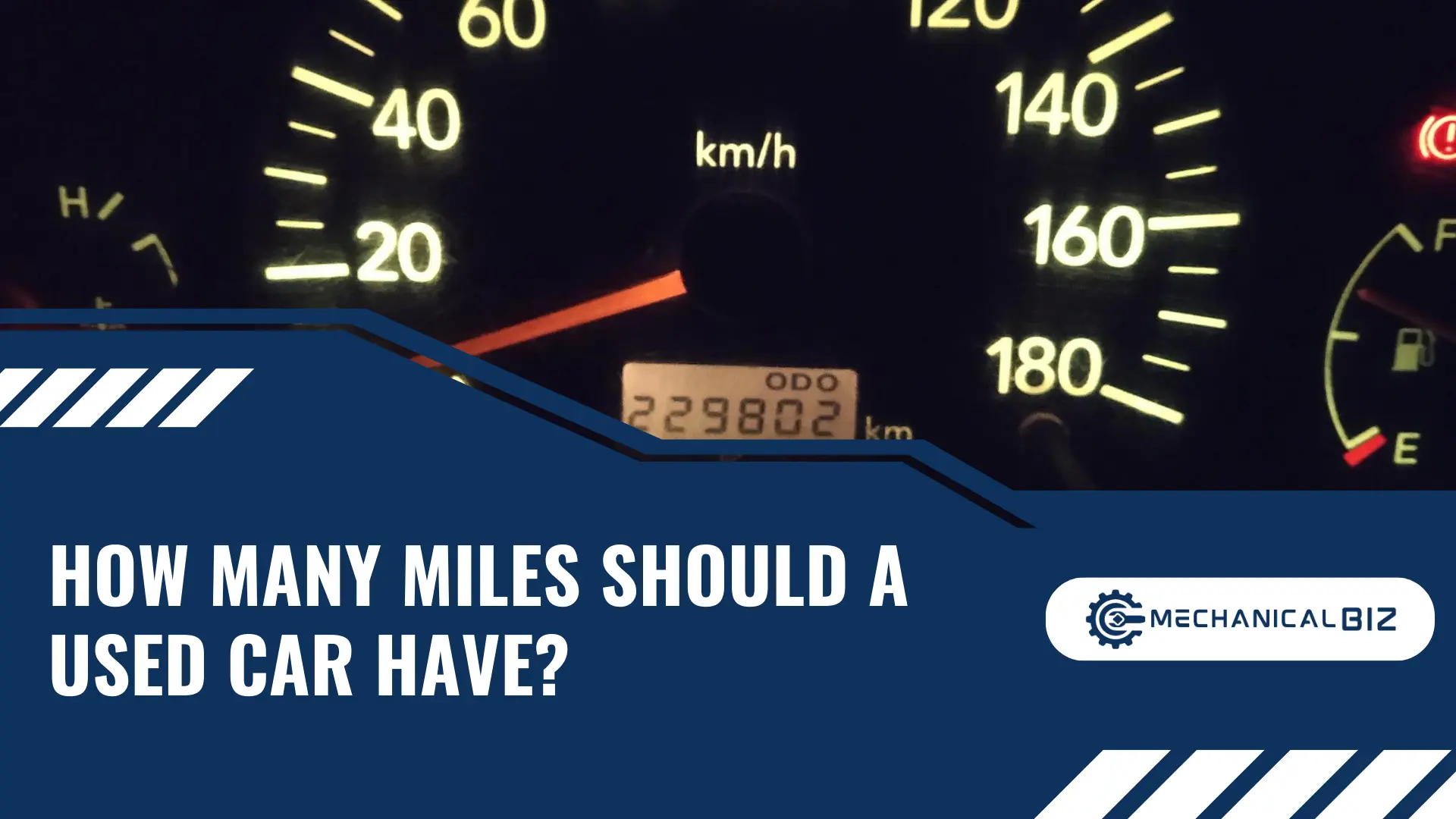How Many Miles Should A Used Car Have? => A used car should ideally have around 12,000 to 15,000 miles per year. This is considered a standard mileage range for a used car.
When buying a used car, it is important to consider the mileage as it can give you an idea of the vehicle’s overall condition and potential future expenses. Generally, lower mileage indicates that the car has been driven less and may be in better condition.
On the other hand, higher mileage may indicate that the car has been driven more extensively, potentially leading to more wear and tear. However, it is important to remember that mileage is just one factor to consider when buying a used car.
Other factors such as maintenance history, overall condition, and the car’s usage should also be taken into account. Ultimately, it is recommended to have the car inspected by a mechanic and do thorough research before making a purchase decision.

Credit: www.cars.com
Factors Affecting Mileage
When considering how many miles a used car should have, there are several factors to consider. These include the age of the car, its maintenance history, and the type of car it is. Generally, a lower mileage is preferable, but it ultimately depends on the individual car’s condition and how it has been cared for.
Driving Conditions
The driving conditions a car has been exposed to significantly impact its mileage. Continuous driving on rough terrains puts more strain on the engine, causing the accumulation of higher mileage compared to a car that has mainly been driven on smooth highways.
Maintenance History
The maintenance history of a car plays a critical role in determining its mileage. Regular servicing and consistent upkeep can prolong the vehicle’s lifespan, while neglecting maintenance may lead to premature wear and tear, resulting in higher mileage accumulation.
Age Of The Car
The age of the car is a pivotal factor affecting mileage. Older vehicles tend to have higher mileage due to prolonged usage and wear, compared to newer models. It’s important to consider the age of a used car when evaluating its mileage.
Ideal Mileage Range
When it comes to buying a used car, one of the most important factors to consider is the mileage. The ideal mileage range for a used car can vary depending on several factors. In this article, we will explore the ideal mileage range for used cars and provide insights on why it varies depending on the car type, as well as the trade-off between depreciation and reliability.
Depends On Car Type
Each car type has different ideal mileage ranges due to variations in their performance and reliability. Here are some general guidelines:
- Sedans: On average, sedans are known for their longevity and can have an ideal mileage range between 80,000 and 120,000 miles.
- SUVs: SUVs are built for durability and can maintain their reliability up to 100,000 to 150,000 miles.
- Trucks: Trucks are designed for tough use and can handle higher mileage, with an ideal range of 150,000 to 200,000 miles.
- Luxury Cars: Luxury cars may have higher maintenance costs, but they can maintain their performance well into the 100,000-mile range.
Depreciation Vs. Reliability
It’s important to strike a balance between mileage and the car’s overall reliability. While high mileage may indicate wear and tear, it doesn’t necessarily mean the car is unreliable. On the other hand, low mileage doesn’t always guarantee a trouble-free vehicle.
Depreciation is a crucial factor to consider when looking at mileage. A used car with lower mileage typically retains a higher value and depreciates less compared to a high-mileage vehicle. However, this doesn’t mean higher mileage cars are less reliable. Modern cars are engineered to last longer, and regular maintenance can keep them running smoothly even with high mileage.
When evaluating a used car’s reliability, it’s essential to consider the maintenance history, service records, and overall condition rather than solely focusing on mileage. A well-maintained high-mileage car can provide years of reliable service.
In conclusion, the ideal mileage range for a used car depends on the car type and your individual needs. Consider the guidelines mentioned above while also taking into account the maintenance history and overall condition of the vehicle. By doing so, you can make an informed decision and find a reliable used car that meets your requirements.
Determining Mileage Thresholds
When it comes to determining mileage thresholds for a used car, it can be helpful to consult expert opinions. Automotive experts have extensive experience and knowledge in this field and can provide valuable insights that can guide your decision-making process. They can offer recommendations based on various factors such as the make and model of the car, its maintenance history, and typical issues associated with high mileage.
Another factor to consider when determining mileage thresholds is the average lifespan of a used car. Different manufacturers and car models have varying life expectancies, so it’s important to take this into account.
For example, some luxury brands may have a shorter average lifespan compared to reliable, everyday vehicles. By researching the average lifespan of a particular make and model, you can get a better understanding of how many miles a used car should have before reaching its limit.
When it comes to determining mileage thresholds for a used car, it can be helpful to consult expert opinions.
Consulting Expert Opinions
Automotive experts have extensive experience and knowledge in this field and can provide valuable insights that can guide your decision-making process.
They can offer recommendations based on factors such as the make and model of the car, its maintenance history, and typical issues associated with high mileage.
Considering Average Lifespan
Another factor to consider when determining mileage thresholds is the average lifespan of a used car.
Different manufacturers and car models have varying life expectancies, so it’s important to take this into account.
For example, some luxury brands may have a shorter average lifespan compared to reliable, everyday vehicles.
By researching the average lifespan of a particular make and model, you can get a better understanding of how many miles a used car should have before reaching its limit.
Researching Reliable Brands
When considering purchasing a used car, one of the most crucial factors to contemplate is the reliability of the brand. Researching reliable brands can provide valuable insights into the longevity and performance of
high-mileage cars.
By focusing on top brands for high-mileage cars and the best models with good reliability, buyers can make informed decisions about their potential investment in a used vehicle.
Top Brands For High Mileage Cars
The choice of brand plays a pivotal role in the reliability and durability of a used car, especially when the odometer readings are high. Some top brands renowned for their performance even with high mileage
include:
- Honda
- Toyota
- Subaru
- Nissan
- Lexus
Best Models With Good Reliability
Within these top brands, several models stand out for their exceptional reliability and endurance even after accumulating high mileage. Some of the best models with good reliability include:
- Honda Civic
- Honda Accord
- Toyota Corolla
- Subaru Outback
- Nissan Altima
Trusted Sources For Mileage Information
When purchasing a used car, one essential factor to consider is the mileage it has accumulated over the years. As a potential buyer, you want to ensure that the mileage is accurate and reliable. To help you in your quest, there are trusted sources for mileage information that you can rely on. These sources provide comprehensive and trustworthy data to assist you in making an informed decision. Let’s explore some of the most credible sources for mileage information:
Carmax
CarMax is a reputable used car retailer known for its extensive inventory and exceptional customer service. They also provide reliable mileage information on all their vehicles. You can trust CarMax’s mileage data as they thoroughly inspect and verify the mileage of every car in their inventory before listing it for sale. With CarMax, you can have peace of mind knowing that the mileage information you receive is accurate and trustworthy.
Kelley Blue Book
Kelley Blue Book is a well-known and respected automotive industry resource. They provide comprehensive information on the value, maintenance, and specifications of vehicles, including mileage data. Kelley Blue Book utilizes a vast database of vehicle records to provide reliable and up-to-date mileage information. When researching a used car’s mileage, you can rely on Kelley Blue Book as a trusted source.
Cargurus
CarGurus is a popular online marketplace for buying and selling used cars. They have built a strong reputation for being a reliable source of vehicle information, including mileage data. CarGurus collects mileage information from various sources, such as vehicle history reports and dealer records, to provide accurate and up-to-date mileage details for each listing. By utilizing CarGurus, you can access trustworthy mileage information to aid in your used car buying journey.
Autotempest
AutoTempest is a comprehensive online platform that aggregates listings from various automotive websites. It allows you to search for used cars from multiple sources all in one place. When it comes to mileage information, AutoTempest utilizes the data provided by the individual sellers or dealers. While mileage accuracy may vary depending on the source, AutoTempest makes it convenient to find a wide range of options and compare mileage details for different vehicles.

Credit: www.jdpower.com
Guidelines For Buying Used Cars
When it comes to buying a used car, many people wonder how many miles the car should have. While there is no specific number, it is generally recommended to look for a used car with lower mileage, ideally under 100,000 miles, to ensure better reliability and longevity.
It’s also important to consider other factors such as the car’s maintenance history and overall condition.
Setting A Budget
Before you start your search for a used car, it’s important to determine your budget. Setting a budget will help you narrow down your options and ensure that you don’t overspend. Consider factors such as your income, expenses, and any financing options you may have.
By knowing your budget, you can focus on finding a used car that fits within your financial means.
Getting A Pre-purchase Inspection
It’s always a good idea to get a pre-purchase inspection done on any used car you are considering buying. A pre-purchase inspection will help identify any potential issues or problems with the car, giving you a clear picture of its condition.
Look for a reputable mechanic or inspection service that can thoroughly examine the car’s mechanical and electrical components, as well as its overall body condition. Taking this step can save you from buying a car with hidden problems.
Checking Vehicle History
Checking the vehicle history is crucial when buying a used car. It allows you to uncover any hidden information about the car, such as previous accidents, title status, or any major repairs. You can request a vehicle history report from sources like Carfax or AutoCheck.
These reports can provide valuable insights into the car’s past and help you make an informed decision. By reviewing the vehicle history, you can ensure that you’re buying a car with a clean record and avoid potential headaches down the road.
Tips For Negotiating Mileage Price
When negotiating a used car’s mileage price, consider the average annual mileage, vehicle condition, and maintenance history. Use reputable car valuation tools to determine fair mileage pricing based on the car’s make, model, and year. A thorough inspection and test drive can also help assess if the mileage aligns with the car’s overall condition.
Used cars can vary greatly in terms of mileage, making it important to carefully consider the mileage when buying a pre-owned vehicle. Here are a few key tips for effectively negotiating the price based on mileage.
Considering Other Factors Of Car’s Condition
It’s essential to assess the overall condition of the car in addition to its mileage. Prioritize factors such as maintenance records, age of the car, and overall wear and tear. This comprehensive evaluation will provide a more accurate picture of the car’s value.
Using Mileage As a Bargaining Chip
Mileage can be a significant bargaining chip when negotiating the price of a used car. Highlight the importance of lower mileage in terms of reduced wear and tear and potential longevity. Use this as leverage to negotiate a fair price based on the vehicle’s odometer reading.
By considering these factors and leveraging mileage as a part of the negotiation process, buyers can effectively secure a better deal on a used car purchase.

Credit: www.realcartips.com
Frequently Asked Questions For How Many Miles Should A Used Car Have
How Many Miles Is Too High For A Used Car?
The number of miles that is considered too high for a used car varies depending on factors like age, make model and maintenance history. Generally, anything above 100,000 miles is considered high, but with proper care, some cars can last well over 200,000 miles.
Is It OK to Buy A Car With 200k Miles?
It is generally not recommended to buy a car with 200k miles due to the potential for expensive repairs and maintenance issues.
Is 30 000 Miles A Lot For A Used Car?
30,000 miles is not a lot for a used car. It’s considered low mileage.
What Is The Average Life Of A Used Car?
The average life of a used car varies, but it typically lasts around 150,000 to 200,000 miles.
How Many Miles Should A Used Car Have To Still Be Considered Reliable?
It depends on several factors such as the brand, maintenance history, and overall condition of the car. However, generally speaking, a used car with around 50,000 to 100,000 miles is often considered reliable.
Conclusion
When buying a used car, it’s essential to consider the mileage to ensure you’re making a wise investment. By understanding the ideal mileage range and conducting thorough inspections, you can confidently purchase a quality used vehicle that aligns with your needs and budget.
Remember that the right mileage depends on various factors, including the car’s make and model, maintenance history, and intended usage. With this information in mind, you can make an informed decision and enjoy the benefits of a reliable, well-maintained used car.


